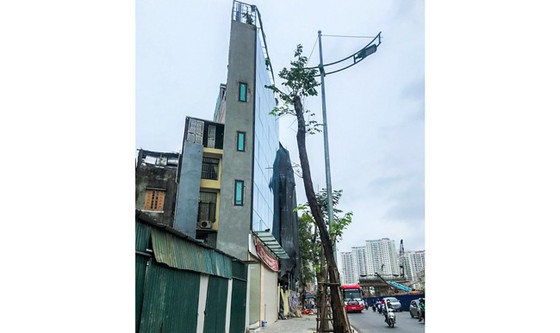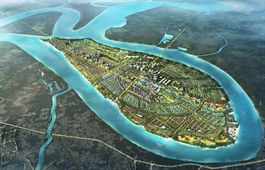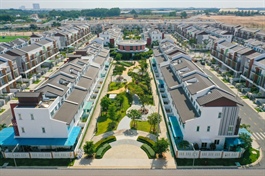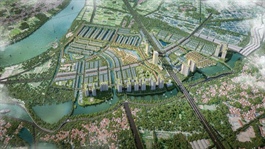City resettlement plan must favor local residents
City resettlement plan must favor local residents
Some articles in recent editions of Saigon Investment mentioned a plan of the People's Committee of Ho Chi Minh City to effectively manage and use some areas for development purposes.
Ultra-thin house is a problem for road clearance in big cities.
|
Saigon Investment has since received many suggestions from experts. Mr. Lê Hoàng Châu, Chairman of the Ho Chi Minh City Real Estate Association, shares his views on the policies for such development projects.
Appropriate policies
One policy by the People's Committee of Ho Chi Minh City aims to clear the land on both sides of planned roads, and auction the land to best investor for projects. This will help increase revenue for the state budget, and also the State can use it for resettlement of local residents. Moreover, if the State takes control of all land on both sides of planned roads, including small pieces of land adjoining such roads, it will prevent the construction of extremely small or badly designed ugly houses springing up along main streets, which spoils the beauty and look of the whole City.
If the State takes back the land for construction of roads and also takes back the land on both sides of such roads as planned in the policy for land clearance and resettlement, some positive results will surely be achieved. Firstly, the State will make fair compensations and offer the same price to everyone whose land has been taken to be used for such projects. Secondly, the State will have a certain land fund for resettlement of local people. Thirdly, it will be possible to collect back at least a part of the state budget spent on infrastructure and road development projects.
On the other hand, such plans require huge amounts of capital for compensations, land clearance and resettlement. If the State aims at clearance of land for planned roads and clearance of land adjoining the roads for other purposes, it will need a lot more money for compensations than just clearance of land for the planned roads, as has been done over the past years.
People whose land lies out of the road width, but still in the area adjoining the roads are usually positive. In previous projects, the locals who had land taken did not receive satisfactory compensation or support for resettlement, nor were they able to exchange their pieces of land for new land at the same price or fair price.
The hardest part is probably how the policies for compensations and support for resettlement could be implemented in a way that protects the legal rights and interests of the locals whose land is taken for projects. Hence, competent agencies must first ensure fair prices and resettlement for locals so as to reach an agreement among the people who have had their land taken for projects.
Choices for affected locals
If the State clears only the land for construction of the roads, as has been done over the years, the positive effect is that it will affect a smaller number of people. After a new road is built or an old road is widened, some bits of land which were previously away from the road turn out to lie next to the new road, and the value of the land increases, bringing higher benefit for the land user.
Big pieces of land become smaller but still provide a source of livelihood for the affected residents. In general, the State can benefit from development of infrastructure and roads, promote better socio-economic growth, raise budget revenue through collection of taxes on land use rights, and also for transfer of real properties and corporate income tax.
However, not taking control of the land on both sides of the planned roads and organizing auctions for their sale, would cause the State to confront the reality of the situation where it has no land funds for improvement of urban areas, resettlement for the locals, construction of public amenities, or get back part of the money spent on the infrastructure and road development projects. People who have all the land cleared for the projects may receive some compensations for resettlement, but have to suffer the biggest losses.
For this reason, it is essential to improve the policy for satisfactory compensations and support for resettlement to protect all the legal rights and interests of the people who have their land taken for implementation of infrastructure and road development projects. Only then will it be able to receive the highest approval from the affected local people.
Therefore, we strongly support the idea that it is vital to arrange for resettlement in the same area for the people who have their land cleared for the projects, because this is the best way to ensure the highest interest for affected locals. This land exchange scheme suggests that each person who has land cleared is allowed to get back a smaller piece of land in proportion to the increased price of land driven up by the improved infrastructure.
This land exchange scheme is simple, easy to understand, easy to carry out and easy to get a nod of approval from the people. This land exchange scheme can only be carried out if the piece of land is large enough, can be exchanged for one lot or for a private house for resettlement. However, it is not suitable for people with a small piece of land or low value of land. In such cases, it is necessary to add a regulation for exchange for some suitable accommodation in an apartment building.





























